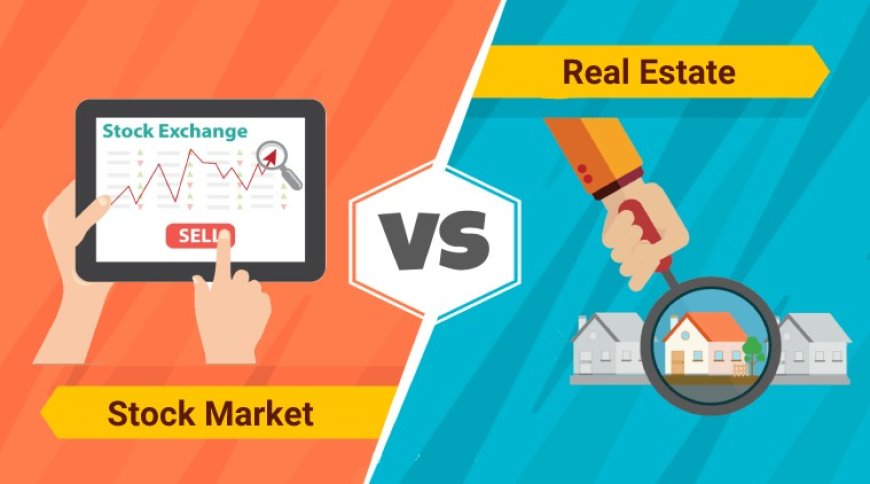Stock Market Investment vs. Real Estate: Which Path Leads to Wealth?
Looking to build wealth? Explore the pros and cons of stock market investment and real estate to make an informed decision. Discover the potential returns, risks, and strategies involved in each path. Find out whether the stock market or real estate is the right choice for you.

When deciding between stock market investment and real estate, it's essential to evaluate the historical performance and returns of each asset class. Let's delve into the data and analysis to gain a better understanding of these investment options.
Stock Market Investment Performance:
The stock market has demonstrated impressive long-term growth, but it also experiences periods of volatility. To evaluate its performance, we can examine the average annual returns of major stock market indices like the S&P 500.
Over the past several decades, the S&P 500 has delivered an average annual return of around 10%. However, it's important to note that these returns can vary significantly from year to year. For example, during market downturns, such as the 2008 financial crisis, the stock market experienced substantial declines.
Real Estate Investment Returns:
Real estate investment offers the potential for both income generation and capital appreciation. To assess its performance, we can analyze historical data on property values and rental income.
According to the National Association of Realtors, U.S. home prices have experienced an average annual appreciation of approximately 3% to 5% over the long term. However, it's worth noting that regional and local market conditions can significantly impact these figures. In some high-demand areas, the appreciation rates can be even higher.
Rental income is another crucial aspect of real estate investment. The return on investment (ROI) from rental properties can vary based on factors such as location, property type, and rental demand. It's common to aim for a rental yield of around 4% to 10%, which is calculated by dividing the annual rental income by the property's purchase price.
Risk and Volatility:
Both stock market investment and real estate carry inherent risks, but they differ in terms of volatility and risk exposure.
The stock market is known for its short-term volatility, influenced by factors such as economic conditions, company performance, and market sentiment. It's essential for stock market investors to be prepared for market fluctuations and potential losses during downturns.
Real estate tends to be less volatile compared to the stock market. However, it is not immune to risks such as changes in local market conditions, interest rate fluctuations, and unexpected expenses related to property maintenance or vacancies. Additionally, real estate investments can be illiquid, meaning they may take time to sell and convert into cash.
Diversification and Portfolio Allocation:
Diversification is an important risk management strategy. By allocating investments across different asset classes, including stocks and real estate, investors can potentially mitigate risks and enhance their overall portfolio performance.
The optimal allocation between stocks and real estate depends on individual preferences, risk tolerance, and investment goals. Financial advisors often recommend diversifying across various asset classes to balance risk and maximize returns. A common approach is to have a diversified portfolio that includes a mix of stocks, bonds, real estate, and other investment vehicles.
Conclusion:
When comparing stock market investment and real estate, it's evident that both options offer potential for wealth accumulation. The stock market has historically provided strong long-term returns but is prone to short-term volatility. Real estate investment offers the advantage of tangible assets, potential rental income, and appreciation, albeit with a more stable yet less liquid investment.
Ultimately, the decision between stock market investment and real estate should be based on your financial goals, risk tolerance, and personal circumstances. Consider consulting with a financial advisor who can provide personalized guidance and help you create a well-diversified investment portfolio tailored to your needs.
Also Read: Maximizing Home Loan Repayment? Exploring the Pros and Cons of Various Approaches
































































